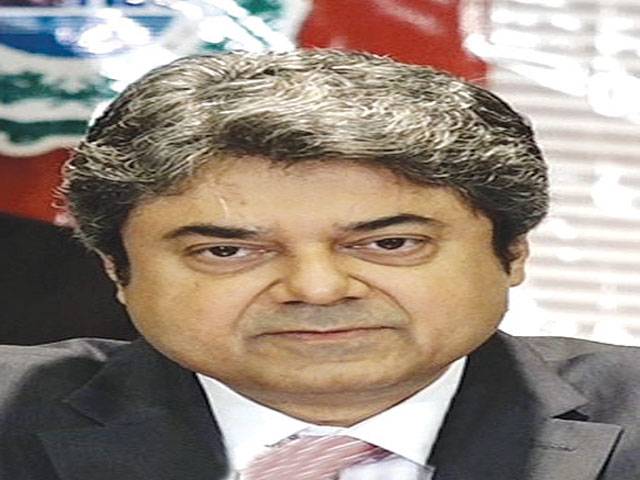ISLAMABAD - Barrister Farogh Naseem representing the federation and Chairman Assets Recovery Unit (ARU) on Monday continued his arguments in petitions challenging the presidential reference against Justice Qazi Faez Isa before the Supreme Court of Pakistan.
A ten-member bench of the apex court headed by Justice Umar Ata Bandial conducted hearing of identical petitions challenging the presidential reference against Justice Qazi Faez for allegedly not disclosing his foreign properties in his wealth statement.
During the hearing, Farogh Naseem quoted the judgments from the Indian jurisdiction and the Privy Council in order to establish the principle of proximity. He said that judges should be of a high standard than the ordinary citizens.
He added that under the law if the spouse and the children of a judge can enjoy the perks and privileges of the job, then why is the judge not accountable for the assets of his wife. To strengthen his point of view he also quoted Judge (Inquiry) Act, 1968.
However, Justice Bandial said that they are not impressed with this as it is draconian law. Farogh Naseem then contended that Martial Regulations have been recognized by the governments. He said that when many laws were repealed under 18th Amendment, why was it not deleted. He said an elected democratic government not only adopted it, kept it so this could be used. He maintained that the law is, therefore, not draconian.
Justice Mansoor Ali Shah questioned if the proceeding are initiated against the wife of judge for not declaring properties in her tax returns and if she is unable to explain the sources then there will be case of concealment against her under the law, then how the petitioner [Justice Faez] comes into the picture and why does he have to disclose the sources?
The counsel said that these are not tax proceedings, but disciplinary. It is the matter of public perception and public controversy about the judge.
Justice Mansoor remarked that if today social media runs a fake news item and then it proves to be fake, then what will happen? Farogh Naseem contended that fake news is always fake, but the case here is that the judge’s wife has expensive properties in London and he has failed to disclose the sources.
Justice Maqbool Baqir asked whether it has been established who provided funds for the purchase of these properties? These could be inherited or the wife could have sources to purchase them. He said that in many cases the independent wife asks her husband never to inquire from her about the financial, business issues.
Justice Yahya Afridi told the counsel that he has not yet provided the summary for the initiation of the reference and whether the information collected on the petitioner, and the former Attorney General [Anwar Mansoor] rejoinder, went directly to the Supreme Judicial Council or through the President of Pakistan.
Justice Bandial addressing Farogh Naseem said that “you are going into deeper points arising out of the constitutional office of the judge. However, you are moving away from the reference that is specific.” He added that they are aware of the jurisdiction of the SJC and asked him to tell if the reference is merely information.
Justice Bandial said that according to you at the end only question seem to be important and that is the issue of source of properties, as large duty upon the judge because of sacred trust and he [judge] must be above from every ‘opprobrium’ so public or private life cannot be impinged.
He continued that they cannot allow Farogh Naseem to assail the judge on generality, surmises or expectation and what the public thought. He added that the reference is based on dishonesty and corruption. The bars all over the country are sentinels of the courts. They are supporting the petitioner and according to them there is no complaint of dishonesty against the petitioner.
Justice Bandial said that the judges are accountable in every way and their standard is supposed to be very high. He said they live in glass houses and they need to identify the issue.
He further added “you are disassociating from the Section 116 of Income Tax Ordinance, 2001, which is the base of reference. Now your main concern is that the judge in the society be paragon of virtue.”
The apex court asked Farogh Naseem what was the solution? “Once you are abandoning Section 116 of ITO, which does not impose obligation on husband to declare wife’s assets in tax/wealth returns. You expect the Supreme Court to give judgment on an out of blue concept. Now you are saying that Section 116 of ITO is not main issue. The declaration, the form and the rules does not support your point of view.”
Later, the bench adjourned hearing in this case till Tuesday (today).






